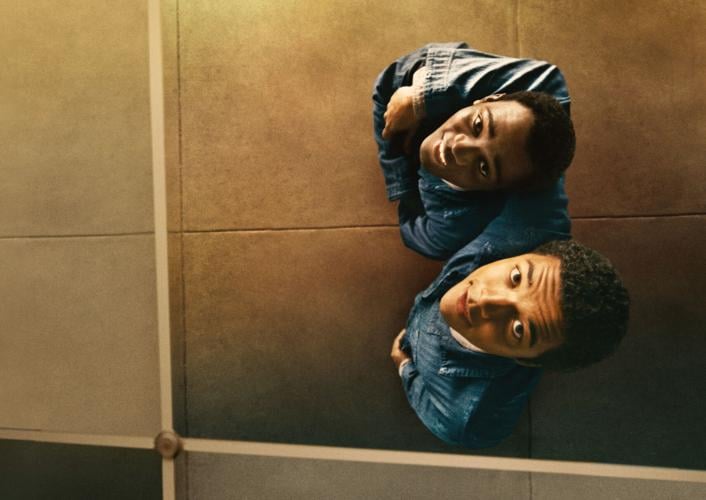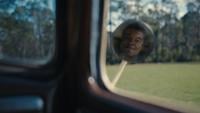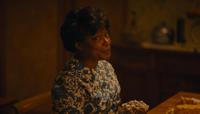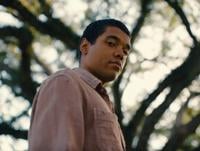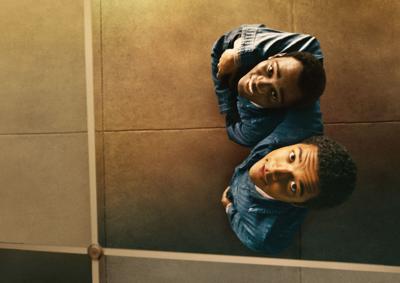Colson Whitehead is a highly acclaimed, African American author. His novel The Underground Railroad (2016) won the Pulitzer Prize for Fiction. It was subsequently adapted into a 2021 TV series, which was nominated for Outstanding Limited or Anthology Series at the 73rd Primetime Emmy Awards. Whitehead's book, The Nickel Boys (2019) won him the Pulitzer Prize for Fiction again, making him one of only four writers ever to win that prize twice. It seemed inevitable that his 2019 book would also get adapted to the screen.
The book is a fictionalized account of what occurred at the Dozier School for Boys, a reform institution in Florida that was the largest of its kind in the United States. The school was shut down in 2011 after opening in 1900. The state permanently closed the school after an investigation revealed a history of abuse, beatings, rapes, torture and even murder of students by staff. A high number of unmarked graves were even discovered there. Director and co-writer RaMell Ross was nominated for an Oscar for Best Documentary Feature at the 91st Academy Awards. He could've easily done a documentary version of Whitehead's book, but he choose instead to make this his feature narrative debut.

However, it's not surprising that Ross incorporates a lot of documentary footage here, blurring fact and fiction, at times very seamlessly. Yet, Ross intentionally takes us out of the narrative to show documentary footage, as a way of underlining the horror done to children, but not in a way to glorify it. If you've seen Ross' documentary Hale County This Morning, This Evening (2018), a lot of the way that he shot or crafted that film is mimicked or paralleled here. For example, a similar time-lapse trick, Ross utilizes in both.
What's most outstanding is Ross' choice for the cinematography. The entire narrative is done in first-person. This means that the entire film is photographed as if the camera lens is the eyes of the protagonist. This never breaks. Even if it means awkward or even shaky camera movements, the camera never strays from giving us the direct perspective of the protagonist's eyes. It is one of very few examples that literally puts us in the shoes of its characters. It is an ultimate form of creating an immersive experience. It's similar to Oscar-nominee Julian Schnabel's The Diving Bell and the Butterfly (2007).

I wasn't exactly sure where Ross was going, but the film is revealed to be a Black Lives Matter or BLM film. When it comes to BLM stories, often it's about a case that was caught on camera, either on a cell phone or police body footage. The camera is usually attached to someone other than the Black victim. Ross flips it and has it, so that it feels as if the camera instead is attached to the victim in question. However, it should be noted that Ross avoids making his film overtly or bluntly political or even all that racial. For example, there's a moment where a White character, played by Fred Hechinger (Gladiator II and Thelma), could've used the N-word, but Ross doesn't allow it.
If Ross had made this a documentary, it probably would've been akin to Sugarcane (2024), which is about a very similar subject but set in Canada and focused on the abuse of Indigenous or Native American people. If Ross had turned this into a TV series, it probably would've felt like the episode "Education" as part of Steve McQueen's Small Axe (2020). McQueen's episode wasn't about physical or even sexual abuse, but it was about how Black boys are possibly mistreated within the school system. Of course the performances of the two young Black actors at the center here are incredible. Ethan Herisse (When They See Us) plays Elwood, a teenager who gets a scholarship to go to a prestigious place, but he's arrested for a crime he didn't commit and ends up going to Nickel Academy, the equivalent to the Dozier School for Boys.

Brandon Wilson (The Way Back) plays Turner, a fellow student at Nickel Academy, although for him he might as well be an inmate at a prison. It's not sure what he did to land in this place, but Turner says he's from Houston, Texas. Nickel Academy is likely in Florida or it could be in Louisiana where Ross shot this film. Yet, it's not clear why Turner is in this different state from his home. All we know is that Elwood befriends him because unlike the other boys at the academy, Turner doesn't bully him or make him feel like an outcast. Turner is nice to Elwood. They hang out together.
There's a tenderness, almost a sweetness between them. Some might complain that there isn't enough expository information to explain why the Nickel Academy and thus Dozier School was infamously significant. We don't delve as deeply into the abuses and veritable crimes. Some might appreciate that Ross doesn't revel in what's called Black trauma or isn't what's been labeled trauma porn, particularly when it comes to telling African American stories. Yes, there's some of that here and it's poignant. However, the friendship between Elwood and Turner is my takeaway. There was a friendship there, a caring between the two. The only other film that even dared to give us something in that vein was Minhal Baig's We Grown Now (2024).

Rated PG-13 for strong language, including racial slurs, violent content and smoking.
Running Time: 2 hrs. and 20 mins.
In theaters.

